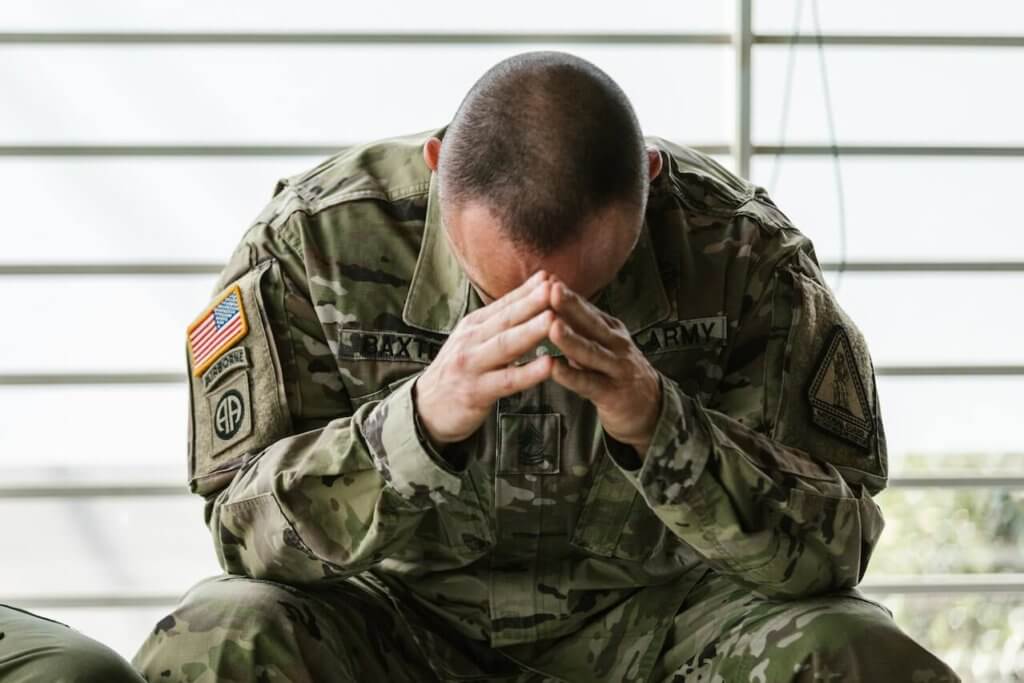
Post-traumatic stress disorder (PTSD) is a common condition among military personnel and can be challenging to manage. The symptoms of PTSD can have a significant impact on daily life, affecting sleep, work, and relationships. However, there are many coping strategies that military personnel and their loved ones can use to help manage PTSD symptoms. In this post, we will discuss some self-help strategies that could be included, such as getting moving, self-regulating the nervous system, connecting with others, taking care of the body, dealing with flashbacks, nightmares, and intrusive thoughts, and working through survivor’s guilt. We will also highlight the importance of seeking professional treatment.
Getting Moving
One effective coping strategy for PTSD is to get moving. Exercise has been shown to help reduce symptoms of PTSD, such as depression and anxiety. Exercise also helps to promote better sleep, which is essential for those with PTSD. Military personnel can try incorporating physical activity into their daily routine, such as running or practicing yoga.
Self-regulating the Nervous System
PTSD can cause hyperarousal, leading to increased anxiety and difficulty relaxing. Learning techniques to self-regulate the nervous system can help manage these symptoms. For example, breathing exercises, meditation, and progressive muscle relaxation can help reduce feelings of anxiety and promote relaxation.
Connecting with Others
Social support can be a critical component of managing PTSD symptoms. Military personnel can benefit from connecting with others who have had similar experiences. Support groups, counseling, and peer support can provide a sense of connection and understanding.
Taking Care of the Body
Taking care of the body is an essential part of managing PTSD symptoms. This includes eating a healthy diet, getting enough sleep, and avoiding alcohol and drugs. Taking care of physical health can also help promote mental health.
Dealing with Flashbacks, Nightmares, and Intrusive Thoughts
PTSD can cause intrusive thoughts, flashbacks, and nightmares regarding past trauma. It is essential to learn techniques for managing these symptoms. For example, grounding techniques, such as focusing on the present moment or engaging in soothing activities, can help reduce the intensity of flashbacks or intrusive thoughts.
Working Through Survivor’s Guilt
Survivor’s guilt is a common experience for military personnel with PTSD. Working through these feelings and learning to manage them is essential. Cognitive-behavioral therapy (CBT) is a type of therapy that can help individuals challenge and change negative thoughts related to survivor’s guilt.
Seeking Professional Treatment
While self-help strategies can help manage PTSD symptoms, it is essential to seek professional treatment. Treatment options for PTSD include medication, therapy, and alternative treatments such as eye movement desensitization and reprocessing (EMDR). Seeking professional treatment can help military personnel manage their symptoms and improve their quality of life.
Coping with PTSD can be challenging, but there are many effective strategies that military personnel and their loved ones can use to manage symptoms. Getting moving, self-regulating the nervous system, connecting with others, taking care of the body, dealing with flashbacks, nightmares, and intrusive thoughts, and working through survivor’s guilt are all effective self-help strategies. However, seeking professional treatment is crucial for managing PTSD effectively. If you or someone you know is experiencing PTSD symptoms, reach out for help today.
This is intended for informational purposes and is not a substitute for professional medical or psychiatric advice, diagnosis, or treatment. Always seek the advice of a qualified healthcare provider with any questions you may have regarding a medical or mental health condition.







